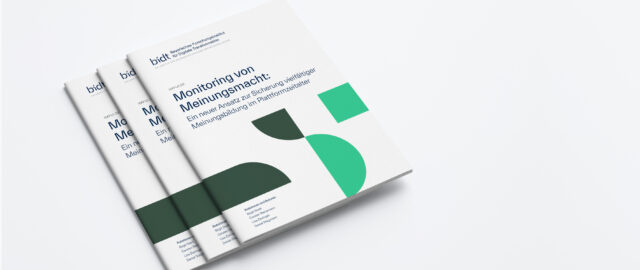In your research, you deal with science communication and political communication. What do you consider to be the biggest challenges in this area in the course of digitalisation?
For public discourse, one of the biggest challenges is that there are now many different actors who (can) participate in public debates, and the traditional mass media have lost their monopoly in preparing and providing information.
This also applies to universities and scientific institutes since, in digital media, everyone can call themselves an expert and potentially reach a large public.
This makes the content in public discourse more heterogeneous and, due to the amount of information available and algorithmically curated information environments, its use potentially more individual. This development has great advantages, for example, because public debates are becoming more egalitarian, but it also entails risks. In addition, we all have to find a way to deal with this flood of information and assess the relevance and quality of the available information.
Online media are a playground for skeptics and other political outsider actors.
 Prof. Dr. Hannah Schmid-Petri To the profile
Prof. Dr. Hannah Schmid-Petri To the profile
What risks do you mean?
In part, actors now have their say via digital media who would otherwise have few opportunities to reach a wider audience. In my research, for example, I deal with communication about climate change. The online media are a playground for sceptics and other political outsider actors, where they can let off steam and network freely, even internationally. These possibilities did not exist in the past.
This entails the risk that they generate attention for their positions and goals. From the point of view of research, but of course also for society, it is very exciting and relevant to trace which groups gain influence under which circumstances and ultimately prevail in the debate. But, of course, this also applies to the “good guys”. For example, the Fridays for Future movement has benefited greatly from social media.
Much of the data generated by the use of digital media is not accessible for research.
 Prof. Dr. Hannah Schmid-Petri To the profile
Prof. Dr. Hannah Schmid-Petri To the profile
One characteristic of digitalisation is the speed with which it is progressing. What does that mean for research?
For research, digital media, first of all, open up various possibilities to study what was previously difficult to observe – for example, the conversation at the regulars’ table. This form of exchange is now more easily accessible online. This is an advantage for research, although it naturally also brings with it the challenge of finding ways to deal with very large amounts of data produced online – in addition to all the legal and ethical aspects that must be considered.
In addition, a lot of data is not accessible for research because it belongs to the platforms, and they do not always have an interest in making their data available for research purposes.
Do you have any plans for your involvement in bidt?
I can complement the existing expertise on the board of directors very well with my communications science perspective on how digitisation is changing public discourse. There are many points of contact for the research topics of other board members, such as Professor Hess, who is studying the changes in the media industry. There are also already several ideas for exciting cross-sectional projects.




